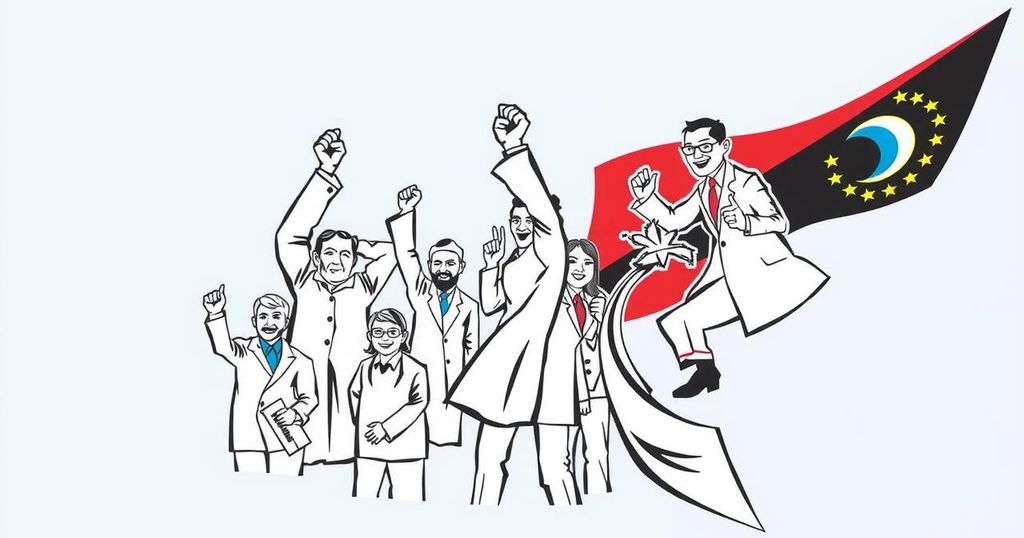Mauritius’ opposition coalition has achieved a landslide victory in recent elections, securing all parliamentary seats and marking a significant defeat for Prime Minister Pravind Jugnauth. Navin Ramgoolam returns as prime minister after previous terms, amid allegations of governmental corruption leading to public discontent. Official results are anticipated soon, but it is clear that the electorate has strongly favored a change in leadership.
The opposition coalition in Mauritius has decisively won the latest national elections, capturing all parliamentary seats in a significant repudiation of the current government. Prime Minister Pravind Jugnauth’s ruling coalition, the Militant Socialist Movement, was unable to secure any of the 62 available seats, leading to an early concession from the Prime Minister. The opposition’s overwhelming victory will reinstate Navin Ramgoolam as prime minister, marking his return to office after previously serving two non-consecutive terms between 1995 and 2014. Jugnauth, who has held office since 2017, campaigned for re-election but faced serious challenges, including allegations of corruption exacerbated by leaked recordings of political and business figures. Jugnauth acknowledged the public’s decision, wishing the new government success. Although official results, which will include additional seats from Rodrigues Island, are expected soon, the opposition coalition has already claimed victory in all announced constituencies. Regardless of the outcome, this election marks a pivotal moment in Mauritian politics, reflecting the electorate’s desire for change. With over one million voters registered for this election, it is noteworthy that Mauritius has maintained stability and a robust democratic framework since gaining independence from British rule in 1968.
Mauritius has a long history of democratic governance, often recognized as one of Africa’s leading democracies. The latest election was the 12th since the nation gained independence and reflected a critical juncture in political sentiment. The ruling coalition faced growing discontent due to corruption allegations, which contributed to their decisive loss. The opposition’s return to power, led by a seasoned political figure like Navin Ramgoolam, signals potential shifts in governance and policy direction. Mauritius’ economy, once primarily based on agriculture, has diversified into finance and tourism, providing a strong base for further development under new leadership.
In conclusion, the election in Mauritius represents a significant shift in political power from the ruling coalition to the opposition, which won all parliamentary seats in a historic repudiation of the government. Prime Minister Pravind Jugnauth’s early concession hints at the electorate’s demand for change and accountability, while Navin Ramgoolam’s return to the premiership may herald a new chapter in Mauritian politics. The implications of these results will be closely observed as the nation moves forward after this decisive electoral outcome.
Original Source: abcnews.go.com






